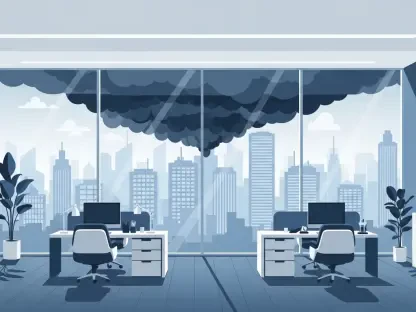Homeowners in Massachusetts are increasingly facing nonrenewals of their insurance policies despite the state’s reputation for being relatively safe from natural disasters. This year, nonrenewal rates have notably increased to 1.51%, which, compared to previous years, is a clear reflection of shifting dynamics. This trend is puzzling given Massachusetts’ wealth and low-risk profile, catching many residents by surprise. Ishita Sen from Harvard Business School voiced her confusion regarding the surge, considering the state has lower exposure to natural disasters compared to others. Evidently, climate change is making a significant impact on the insurance market, even in states like Massachusetts where the risk was once perceived to be minimal.
Climate Change Influences Insurance Markets
The Massachusetts state senate’s report sheds light on how climate change is influencing insurance markets. It exposes the fact that regions most prone to climate-related risks, such as wildfires or hurricanes, are experiencing the highest nonrenewal rates. One striking example is Cape Cod, which, due to its geographical vulnerability to severe storms and potential hurricanes, has seen a significant share of these nonrenewals. This observation aligns with a broader trend where insurance companies reconsider underwriting policies in areas that are increasingly susceptible to climate-related events.
The year witnessed eight weather-related catastrophic events resulting in $892.3 million in property losses. These events underscore the growing impact of climate change on property and insurance markets. Human activities, particularly the burning of fossil fuels, are catalyzing global warming and leading to unpredictable weather patterns. Consequently, insurance companies are often compelled to reassess their policies in high-risk areas, leading to nonrenewals. The reevaluation process considers the likelihood of future claims due to unpredictable and severe weather conditions, compelling providers to mitigate potential financial losses.
Cape Cod’s Vulnerability
Cape Cod provides a notable case study of insurance nonrenewals due to geographical vulnerability. Despite Massachusetts’ overall low-risk profile, Cape Cod’s exposure to severe storms and potential hurricanes places it at a higher risk. This vulnerability translates to a greater likelihood of property damage which, in turn, affects insurance policy renewals. Insurance companies scrutinize such areas closely, factoring in the increased probability of claims arising from extreme weather events. As climate change exacerbates these conditions, insurance providers adjust their risk assessments accordingly, leading to nonrenewals for homeowners.
The situation in Cape Cod demonstrates the broader influence of geographic specifics on insurance market dynamics. Areas exposed to extreme weather often face higher insurance premiums and more frequent nonrenewals, regardless of the state’s overall risk profile. Homeowners in these regions encounter challenges in securing continued coverage, illustrating the complex interplay between climate change and insurance policies. Moreover, these dynamics emphasize the need for homeowners to understand their region’s specific risks and plan accordingly, further highlighting the growing urgency to address climate change and its impact on various sectors.
Clean Energy Investments as a Response
In response to the adverse effects of climate change on insurance markets, extensive investments in cleaner and renewable energy solutions have emerged as a strategic countermeasure. This year, 32 leading utility companies committed to investing over $116 billion annually in clean energy technologies. Such initiatives are aimed at mitigating global warming by reducing emissions of heat-trapping gases and promoting sustainable practices. The commitment of these large industries reflects a broader recognition of the need to transition to more environmentally friendly energy sources to combat climate change.
These investments signify a proactive approach towards stabilizing insurance markets by addressing the root cause of extreme weather events. Cleaner energy solutions not only help in reducing greenhouse gas emissions but also contribute to a more sustainable future. By investing in technologies that minimize environmental impact, industries pave the way for a gradual reduction in the frequency and severity of climate-related catastrophes. As such, the long-term benefits of these investments extend beyond environmental preservation to the stabilization of various sectors impacted by adverse weather conditions.
Future Implications for Homeowners
Homeowners in Massachusetts are increasingly experiencing nonrenewals of their insurance policies, even though the state is considered relatively safe from natural disasters. This year, nonrenewal rates have risen significantly to 1.51%, a notable increase from previous years, signaling a shift in the dynamics of the insurance market. The situation is surprising, given Massachusetts’ reputation for wealth and low risk, leaving many residents caught off guard. Ishita Sen from Harvard Business School expressed her bewilderment regarding the uptick, pointing out that the state historically has had lower exposure to natural disasters compared to others. This trend highlights how climate change is profoundly affecting the insurance market, extending its impact even to states like Massachusetts where the perceived risk has traditionally been low. The unexpected increase in policy nonrenewals serves as a reminder of the far-reaching consequences of climate change, prompting both residents and insurers to reassess their strategies and expectations.









